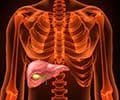Screening Test for Thyroid Dysfunction
Routine screening for thyroid dysfunction by measuring TSH levels is currently not recommended by the US Preventative Task Force.
What are the current recommendations for screening for thyroid disease?
The US Preventative Task Force, which recommends various screening tests in the United States, does not recommend routine screening for thyroid function. It no doubt agrees that screening does detect cases that do not show any symptoms i.e. cases of subclinical thyroid dysfunction. However, treating these cases has not resulted in much benefit. Mild changes in TSH alone sometimes recover on their own without treatment. False positive results during screening could also result in overtreatment. Taking into consideration the side effects of thyroid and anti-thyroid medications, this could prove more harmful than beneficial.
According to the recommendations from the American College of Gynecology, routine thyroid testing is not recommended in all pregnant women and should be done only in women with symptoms of thyroid disease, history of thyroid disease in the past, or the presence of any other medical conditions associated with it, such as diabetes.
On the other hand, screening is recommended for all newborn infants between two to four days of birth to rule out congenital hypothyroidism or hypothyroidism present from birth. Testing may be done before two days if the baby is discharged early, though false positive results may be obtained in these cases. Congenital hypothyroidism can result in mental retardation unless the condition is diagnosed and treated within the first two weeks of life. Thus, early detection through screening enables early treatment.
What are the tests recommended for screening for thyroid disease?
Screening for thyroid disease is done through a simple and accurate blood test i.e. measurement of TSH levels in the blood. Normal TSH values vary with each laboratory, though the acceptable range in a normal adult is usually between 0.5 and 4.5/5.0. Higher levels indicate hypothyroidism whereas lower levels indicate hyperthyroidism.
Taking a medical history and examining the patient can also help to diagnose thyroid disease, though changes in TSH usually occur before the development of physical changes.
For screening congenital hypothyroidism, two methods are used:
- Measurement of TSH with T4 estimation if TSH levels are high
- T4 measurement with TSH estimation if T4 levels are low
Simultaneous measurement of T4 and TSH is an ideal method for detection of thyroid abnormalities, though it is not practical to be implemented on a large scale as a screening test.
Babies with low T4 levels and TSH levels of more than 40 mU per L are diagnosed as suffering from congenital hypothyroidism. If TSH levels are high but less than 40 mU per L, repeat testing is recommended.
What are the other tests used detect thyroid dysfunction?
Measurement of thyroid hormones T3 and T4 are also used to diagnose thyroid dysfunction. A high level of these hormones above the normal range indicates hyperthyroidism, whereas a low level indicates hypothyroidism.
Tests to detect certain antibodies in the blood can help to diagnose the particular condition. For example, presence of thyroid-stimulating antibodies is observed in patients with Graves’ disease.
Radiological tests like ultrasound and CT scan help to diagnose the specific condition and rule out cancer of the thyroid gland. A fine needle aspiration cytology test or FNAC also helps to rule out cancer.










